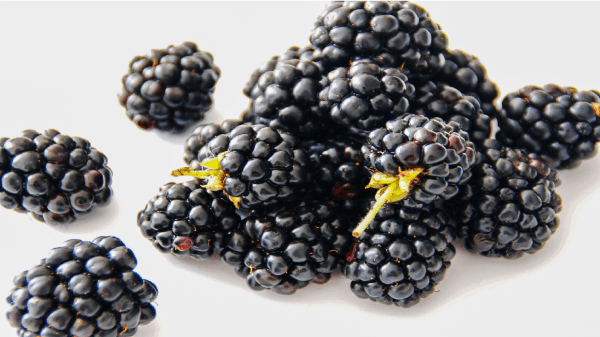Blackberry Polyphenols and Their Role in Health Promotion
Role of blackberry polyphenols in prevention of chronic diseases
Funding for this project (# 2016-07259) was provided by the United States Department of Agriculture (USDA) National Institute of Food and Agriculture (NIFA) Higher Education Challenge (HEC) grant program. This project is in collaboration with the University of Arkansas, Texas Tech University, and The Borlaug Institute at Texas A&M University.

Overview
Blackberries are a rich source of polyphenols, compounds thought to protect against a host of chronic diseases. The polyphenol composition of blackberries is influenced by several factors including genetics, growing season and maturation. In this lesson, you will learn about the major polyphenols in blackberries as well as factors influencing their concentration, and how their health-promoting properties impact human health.
Objectives
- Identify and list major polyphenols in blackberries
- Describe the mechanisms responsible for health benefits of polyphenols
Level of Instruction
Graduate
Learner Prerequisite Knowledge
Instructor Preparation/Notes
Read all associated reading materials, have existing knowledge of the subject matter
Instructions
Learner time required: this lesson should take a well-informed student one to two hours to complete.
Read through the materials and watch the video. At the end, there is a self-exam that you can use to assess if you have met the objectives.
Additional Materials and Resources
Creative Commons Attribution:
Attribution-NonCommercial–ShareAlike 3.0 Unported (CC BY-NC-SA 3.0)
Luke Howard
Ph.D.
Professor, Department of Food Science
University of Arkansas
